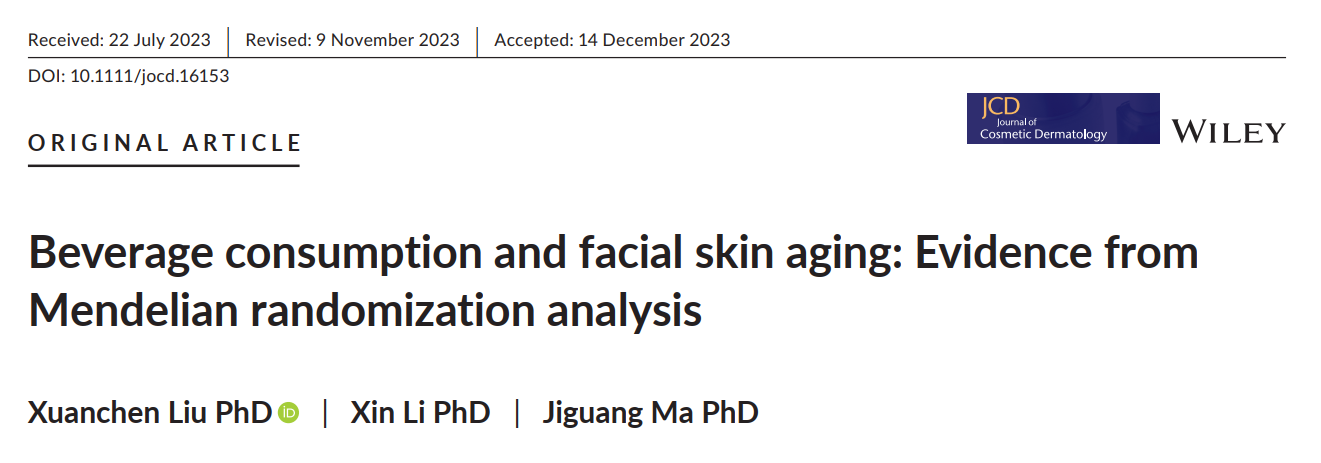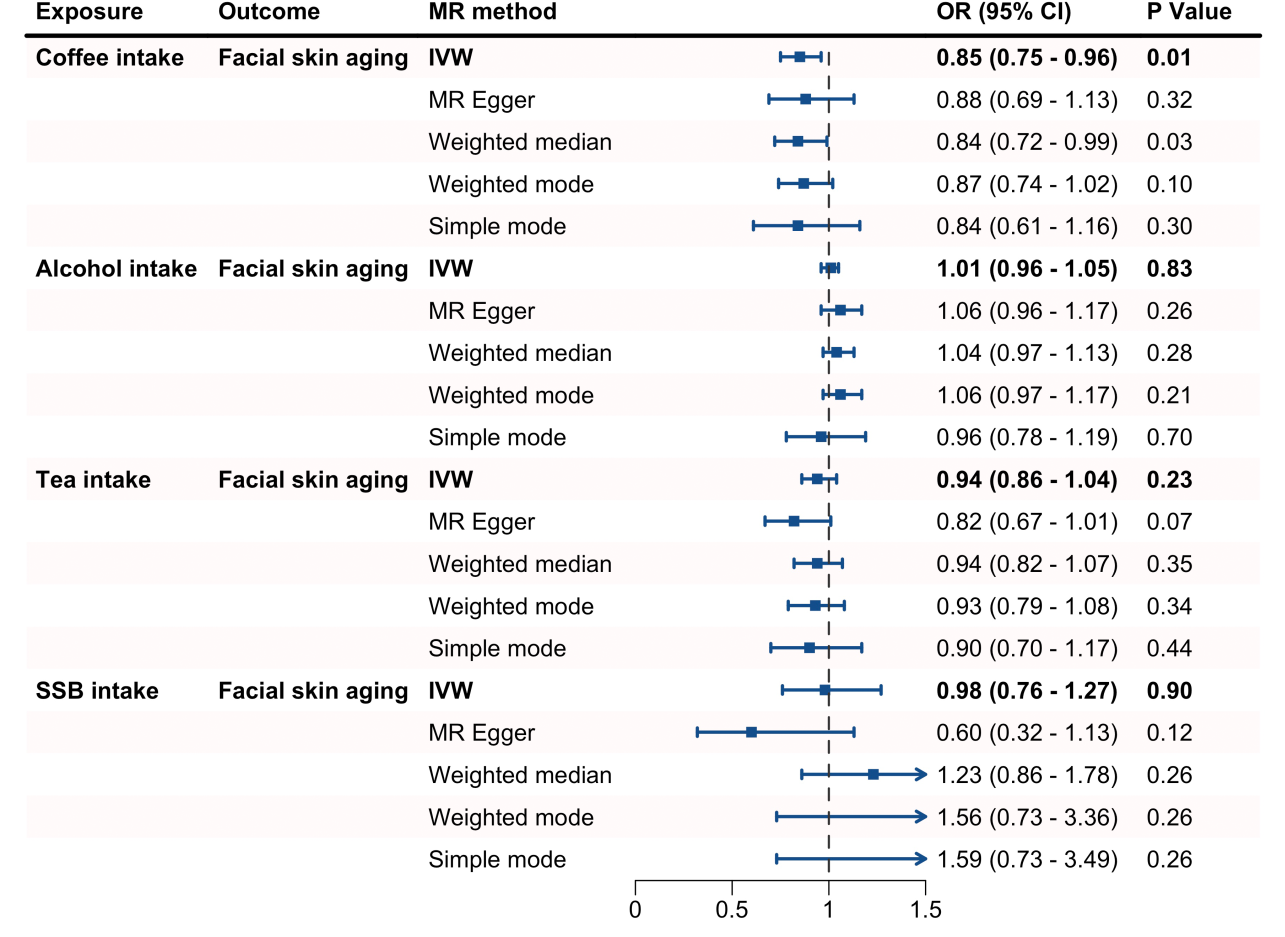Nowadays, coffee is not just a refreshing drink, it has become an indispensable part of our daily life. Coffee has many health benefits. In addition to the “basic” brain boost, regular consumption of coffee has been shown to reduce the risk of cancer, type 2 diabetes, weight control, depression, Parkinson's disease and Alzheimer's disease, etc. However, there is much more to it than that. But there's more to coffee than that - recent scientific research reveals that it can also bring unexpected benefits to our skin health!
As we age, skin aging and sagging becomes an irreversible process. One of the major concerns is photo-aging triggered by ultraviolet (UV) rays. Photoaging refers to the aging process experienced by the skin when exposed to UV rays, which not only accelerates cosmetic changes such as wrinkles and pigmentation, but is also closely associated with an increased risk of skin cancer.UVA radiation (320-400nm), as a kind of long-wave ultraviolet light capable of penetrating the epidermis and reaching the dermis, relentlessly accelerates the aging process through a variety of mechanisms, such as inducing the generation of free radicals, triggering oxidative stress, and promoting collagen degradation, etc. UVA radiation is also known as the “ultraviolet radiation” (320-400nm). By inducing free radical generation, triggering oxidative stress and promoting collagen degradation, it relentlessly accelerates the process of skin aging.
In the face of photoaging challenges, the market offers a wide range of options for preventing or treating photoaging, such as drug therapy, chemical exfoliation, microwave and laser treatments. Although these methods can provide some relief, they are often accompanied by inconveniences: some require frequent and time-consuming trips to specialized institutions for treatment; some are expensive and difficult to maintain in the long run; while others may bring side effects that can be a deterrent. Drinking coffee, on the other hand, brings us an unexpected surprise!
Drinking coffee can slow down facial skin aging!
Not too long ago, researchers from a team of researchers delved into the potential causal associations between the intake of beverages such as coffee, alcohol, tea, and sugar-sweetened beverages (SSBs) on facial skin aging. The researchers noted that while previous studies have been mostly observational and susceptible to confounding variables, this study employed a Mendelian randomization (MR) approach, using genetic variation as an instrumental variable, which allowed for a more accurate assessment of the causal effects of beverage consumption on skin aging.

The study selected a dataset of individuals of European ancestry for analysis, ensuring that population stratification was minimized. The researchers used single nucleotide polymorphisms (SNPs) as instrumental variables and ensured that these instrumental variables met the three basic assumptions of MR: strong correlation, no confounding associations, and influence on the results only through the exposure pathway. To validate the reliability of the results, they also conducted replication analyses using self-reported coffee consumption data from a different GWAS dataset containing 375,833 individuals of European ancestry.
By considering the results of the different analysis methods together, the study found that only coffee consumption showed a significant protective effect against facial skin aging. Specifically, the IVW method showed a significant protective effect of coffee consumption (OR: 0.852; 95% CI: 0.753-0.964; p=0.011), a finding supported by the weighted median method (OR: 0.845; 95% CI: 0.721-0.990 ; p=0.037). In addition, repeated analyses further confirmed the causal effect of coffee consumption on skin aging (IVW analysis: OR=0.997; 95% CI=0.996-0.999; p=0.003). In contrast, alcohol, tea and sugary beverages (SSB) did not show statistically significant associations.

Figure 1: Causal effects of beverage intake-related SNPs on facial skin aging
From a genetic prediction perspective, the study also found a significant association between higher coffee intake and lower risk of facial skin aging. In other words, those who enjoy coffee at a genetic level have relatively slower rates of facial skin aging, with the two showing a significant negative correlation.
Specifically, for every unit increase in coffee intake (one standard-sized cup of coffee per day), the risk of facial skin aging was reduced by approximately 15%. This suggests that moderate coffee consumption may actually help slow down the aging process of facial skin.
Source:Beverage consumption and facial skin aging: Evidence from Mendelian randomization analysis







Post comments